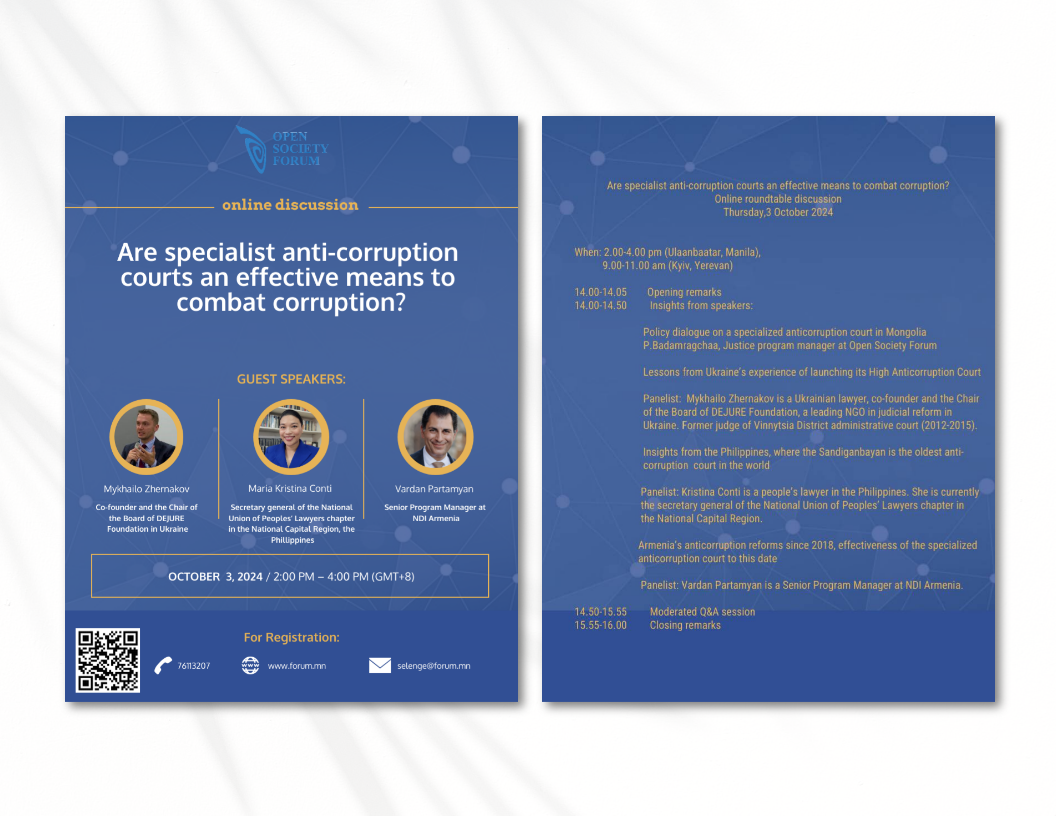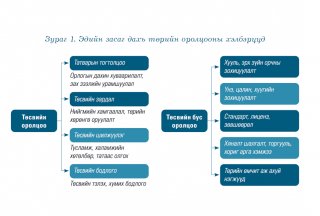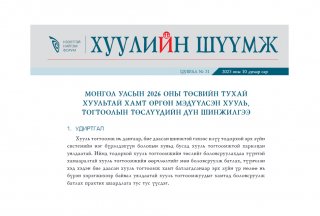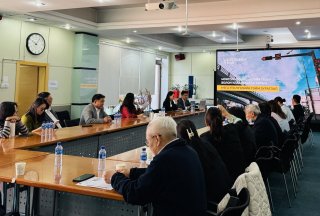In November of 2023, the State Great Hural of Mongolia (Parliament) debated on a proposed bill to establish a specialized anti-corruption court. The bill has since been put on hold following a widespread show of skepticism, especially from Mongolia’s judicial sector professionals.
Internationally, there were 27 such specialist courts in 2022, according to U4.[1] “Many countries, prompted by frustration with the capacity of the ordinary machinery of justice to deal adequately with corruption, have created a special judicial body, division, or set of judges with a substantial or exclusive focus on corruption-related cases.” Mongolia is among a handful of other countries, that have recently considered whether to create a specialised anti-corruption court to address the problem of corrupt practices and impunity. In practice, the existing anti-corruption courts reveal varying degrees of performance and success in achieving their intended purpose, depending on their institutional design, leadership among other institutional factors and the political context of the country to a large extent.
This discussion will start with analysis and contributions from experts in Armenia, Ukraine and the Philippines, where the Sandiganbayan is the oldest anti-corruption court in the world, followed by a moderated Q&A session where Mongolian law makers, judges, legal experts and researchers will be invited to raise questions and exchange information.
This is an online discussion which will be held in English to facilitate direct and meaningful exchanges among participants.
Register to receive the Zoom link by scanning the QR code.
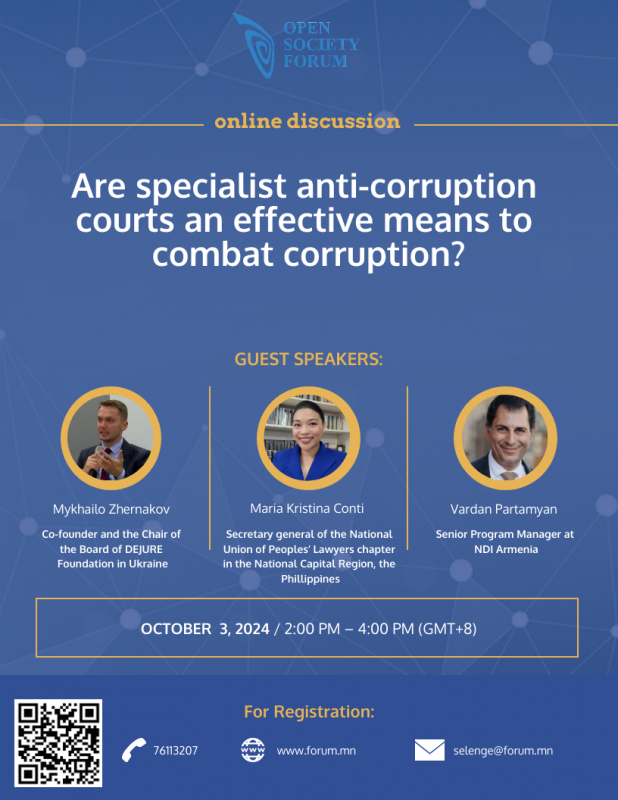
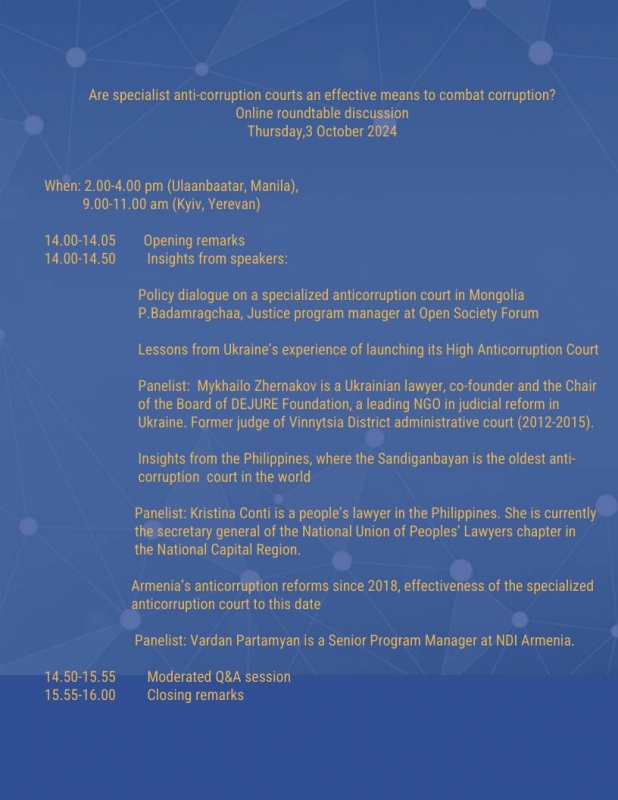
-------------------------------------------------------------------------------
[1] https://www.u4.no/topics/anti-corruption-courts/basics



